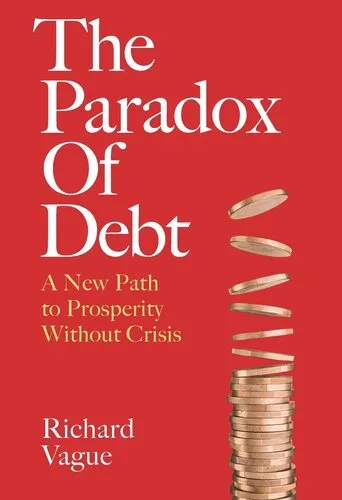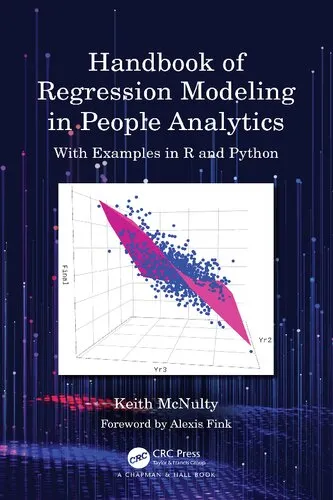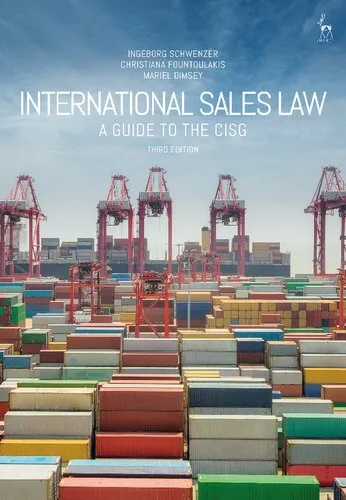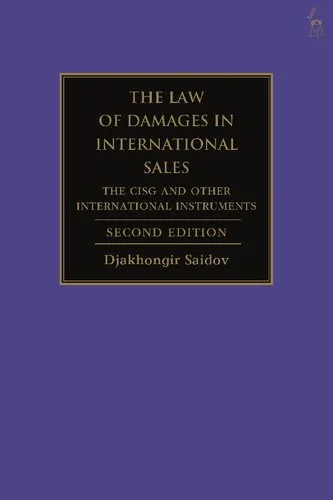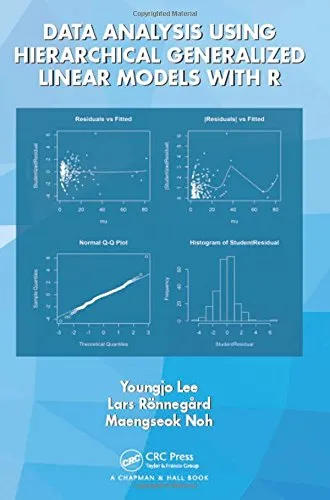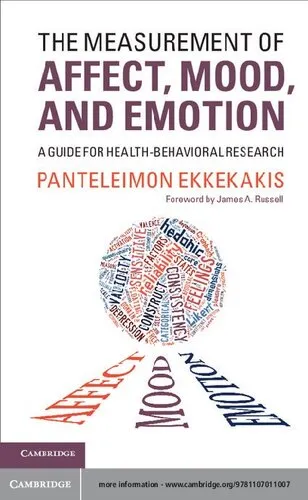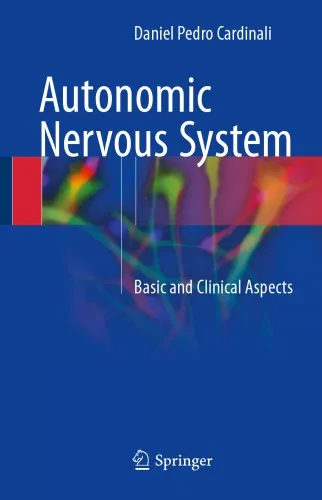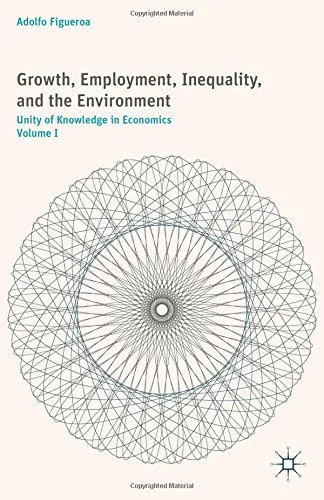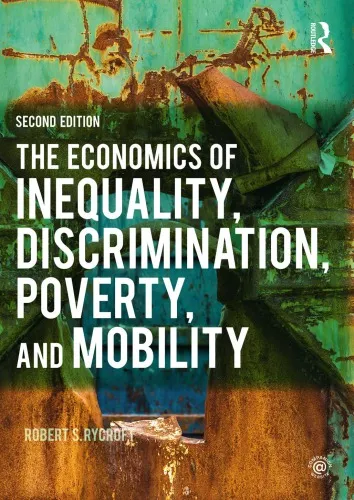The Paradox of Debt: A New Path to Prosperity Without Crisis
4.9
بر اساس نظر کاربران

شما میتونید سوالاتتون در باره کتاب رو از هوش مصنوعیش بعد از ورود بپرسید
هر دانلود یا پرسش از هوش مصنوعی 2 امتیاز لازم دارد، برای بدست آوردن امتیاز رایگان، به صفحه ی راهنمای امتیازات سر بزنید و یک سری کار ارزشمند انجام بدینکتاب های مرتبط:
معرفی کتاب "The Paradox of Debt: A New Path to Prosperity Without Crisis"
کتاب "The Paradox of Debt" نوشته ریچارد وگ، نگاهی عمیق به نقش قرض و بدهی در اقتصاد جهانی است. این کتاب به تحلیل چگونگی استفاده استراتژیک از بدهی برای ارایه راهی به سوی رونق اقتصادی بدون بحران میپردازد. در این متن، به بررسی جزئیات کتاب، نکات کلیدی، نقلقولهای مشهور و دلایل اهمیت آن پرداخته میشود.
خلاصهای دقیق از کتاب
کتاب "The Paradox of Debt" با بیان این حقیقت آغاز میشود که بدهی برای بسیاری از کشورها به یک عامل اساسی در تولید و رشد اقتصادی تبدیل شده است. ریچارد وگ تلاش میکند تا با بررسی تاریخی و تحلیل دادهها، نشان دهد که چگونه میتوان از بدهی برای پیشبرد اقتصاد بهره برد و در عین حال از بحرانهای اقتصادی احتمالی جلوگیری کرد. او به بررسی نمونههای واقعی و تاریخی از کشورهای مختلف پرداخته و با تجزیه و تحلیل مثالهایی از رشد اقتصادی ناشی از افزایش بدهی، رهنمودهایی برای سیاستگذاران ارائه میدهد.
نکات کلیدی
- بدهی نه تنها مشکلی باورنکردنی نیست بلکه میتواند ابزار موثری برای رشد اقتصادی باشد.
- باید تعادل میان مصرف بدهی برای رشد و جلوگیری از بحران حفظ شود.
- تاریخ نشان داده است که کشورهای با استراتژیهای بدهی موفق میتوانند به رشد پایدار دست یابند.
- نیاز به سیاستهای مالی دقیق برای مدیریت بدهی و جلوگیری از سقوط اقتصادی ضرورت دارد.
نقلقولهای معروف از کتاب
"بدهی میتواند دوست یا دشمن باشد - همه چیز به این بستگی دارد که چگونه از آن استفاده میکنیم."
"اگر تاریخ چیزی به ما آموخته باشد، این است که بدون بدهیهای کنترل شده، توسعه پایدار امکانپذیر نیست."
چرا این کتاب مهم است
اهمیت این کتاب در نگرش جدیدی است که به مسئله بدهی میپردازد. در دنیایی که بدهیهای مالی به سرعت در حال افزایشاند و بحرانهای اقتصادی یکی پس از دیگری به وقوع میپیوندند، نیاز به دستورالعملی جامع برای مدیریت درست بدهی بیشتر از هر زمان دیگری احساس میشود. ریچارد وگ با ارائه روشها و استراتژیهای جدید، دریچهای نو به سوی آیندهای با ثبات و پایدار میگشاید و بینشهای خود را به سیاستگذاران، اقتصاددانان و تمامی کسانی که به آینده اقتصادی جهان اهمیت میدهند، عرضه میکند.
Introduction to "The Paradox of Debt: A New Path to Prosperity Without Crisis"
In an era where economic conversations are frequently dominated by concerns of global crises and financial instability, "The Paradox of Debt: A New Path to Prosperity Without Crisis" emerges as a thought-provoking exploration of a new economic narrative. Authored by Richard Vague, this book challenges the conventional wisdom surrounding debt, urging readers to reconsider their perceptions and thoughts about its role in the economy.
Vague presents an argument that flips the script on the traditional view of debt as a perilous burden. Instead, he elucidates how strategically leveraged debt can be instrumental in fostering innovation, driving growth, and creating prosperity. Through meticulous research and a compelling presentation, Vague invites policymakers, economists, and the general public to explore this paradox and contemplate how debt can be harnessed for greater economic health.
Detailed Summary of the Book
Richard Vague delves deep into the history and structure of debt, analyzing its multifaceted roles throughout various economic booms and busts. The book begins by defining debt’s fundamental components and moves through a historical examination of debt in several economic contexts. Vague meticulously analyzes episodes of significant economic growth coinciding with periods of expanding debt obligations, illustrating how debt has acted as a catalyst rather than a shackle.
The book further explores how debt levels across government, corporate, and personal sectors have often been misinterpreted by media and policymakers, leading to misguided economic policies. Vague argues that rather than solely focusing on debt reduction, the focus should be shifted towards managing and channeling debt in productive directions.
Interspersed with data-driven insights and case studies, "The Paradox of Debt" serves as both a historical account and a manual for future economic strategies. It offers a blueprint for using debt in a manner that stimulates economic growth without leading to cycles of destructive financial crises.
Key Takeaways
- Debt can fuel economic innovation and growth when managed and allocated wisely.
- The perception of debt as inherently negative is a misconception that needs addressing.
- Strategic increment of debt correlates positively with economic expansion phases in history.
- Policymakers need to focus on the productive use of debt rather than merely on debt reduction.
Famous Quotes from the Book
"Debt is not the enemy; misuse and mismanagement of debt are the real adversaries of economic stability."
"The key to economic prosperity lies not in avoiding debt, but in embracing it wisely and with calculated intent."
Why This Book Matters
"The Paradox of Debt" is an essential read for anyone intrigued by economic policies or concerned about financial stability. By offering an alternative lens through which to view debt, Richard Vague provides critical insights that challenge and potentially transform conventional economic policies. The book is particularly timely as it presents solutions that can help navigate the complex economic challenges of the modern world, marrying prosperity with stability in an innovative blueprint. Whether you are a policymaker, an academic, or a concerned citizen, the insights contained within this volume provide an invaluable resource for understanding and applying economic principles in today’s society.
دانلود رایگان مستقیم
شما میتونید سوالاتتون در باره کتاب رو از هوش مصنوعیش بعد از ورود بپرسید
دسترسی به کتابها از طریق پلتفرمهای قانونی و کتابخانههای عمومی نه تنها از حقوق نویسندگان و ناشران حمایت میکند، بلکه به پایداری فرهنگ کتابخوانی نیز کمک میرساند. پیش از دانلود، لحظهای به بررسی این گزینهها فکر کنید.
این کتاب رو در پلتفرم های دیگه ببینید
WorldCat به شما کمک میکنه تا کتاب ها رو در کتابخانه های سراسر دنیا پیدا کنید
امتیازها، نظرات تخصصی و صحبت ها درباره کتاب را در Goodreads ببینید
کتابهای کمیاب یا دست دوم را در AbeBooks پیدا کنید و بخرید
1274
بازدید4.9
امتیاز0
نظر98%
رضایتنظرات:
4.9
بر اساس 0 نظر کاربران
Questions & Answers
Ask questions about this book or help others by answering
No questions yet. Be the first to ask!
